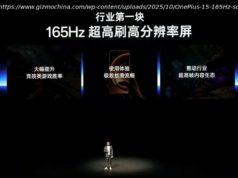The rumors were all correct: Apple has finally given in and gave this year’s iPhones dual SIM support. But unless you’re living in China, you aren’t going to
The rumors were all correct: Apple has finally given in and gave this year’s iPhones dual SIM support. But unless you’re living in China, you aren’t going to get a SIM tray with slots for two physical SIM cards. Instead, you’ll be getting one SIM card and an eSIM. However, Apple isn’t completely yielding ground. Because unless you live in one of ten countries, and is subscribed to one of 14 carriers, that eSIM function is going to be wasted space.
Well, it’s not literally wasted space because an eSIM barely takes up any. It is, in fact, the reason why Apple adopted it for its iPhones so that they only have to make physical room for one nano SIM card. In China, however, eSIM technology isn’t available yet, so Apple had to make do with two physical SIMs.
That said, eSIMs aren’t supported across the world either. Apple, however, isn’t giving other countries the same special treatment. So, in effect, you’re really left with only one SIM. That is, unless you live in these countries and are subscribed to one of these networks:
Austria
• T-Mobile
Canada
• Bell
Croatia
• Hrvatski Telekom
Czech Republic
• T-Mobile
Germany
• Telekom
• Vodafone
Hungary
• Magyar Telekom
India
• Airtel
• Reliance Jio
Spain
• Vodafone Spain
United Kingdom
• EE
USA
• AT&T
• T-Mobile
• Verizon
There is one detail that iPhone Xs and iPhone Xs Max owners should know about dual SIM support. Unlike with some (but not all) dual SIM Android phones, an iPhone that’s locked to one carrier will have to use the same carrier for the second SIM. Additionally, if the iPhone is locked to a CDMA network like Verizon’s, the other SIM ironically won’t support CDMA.






